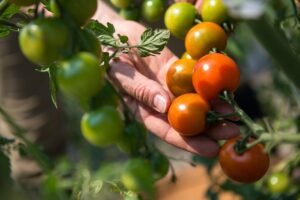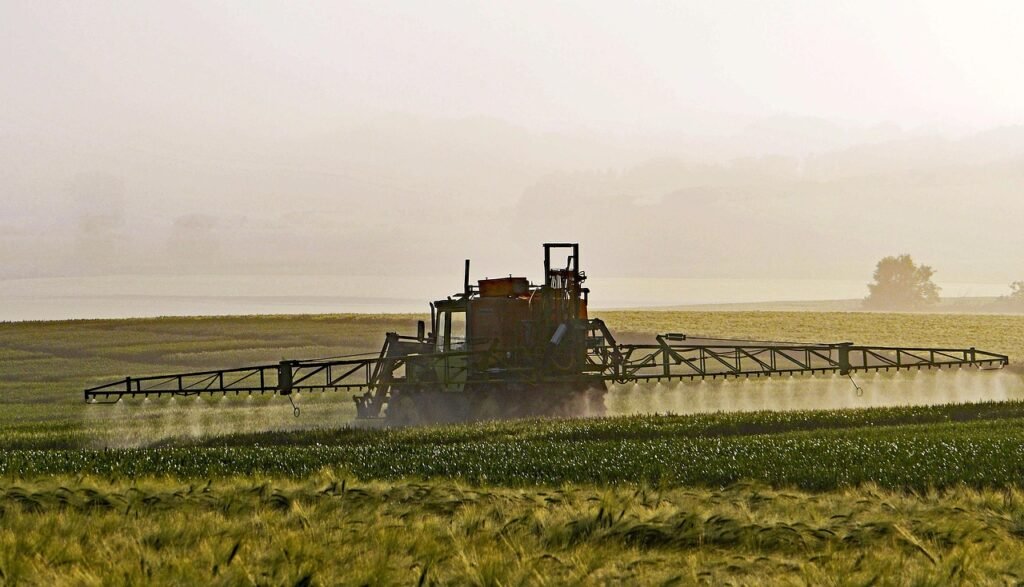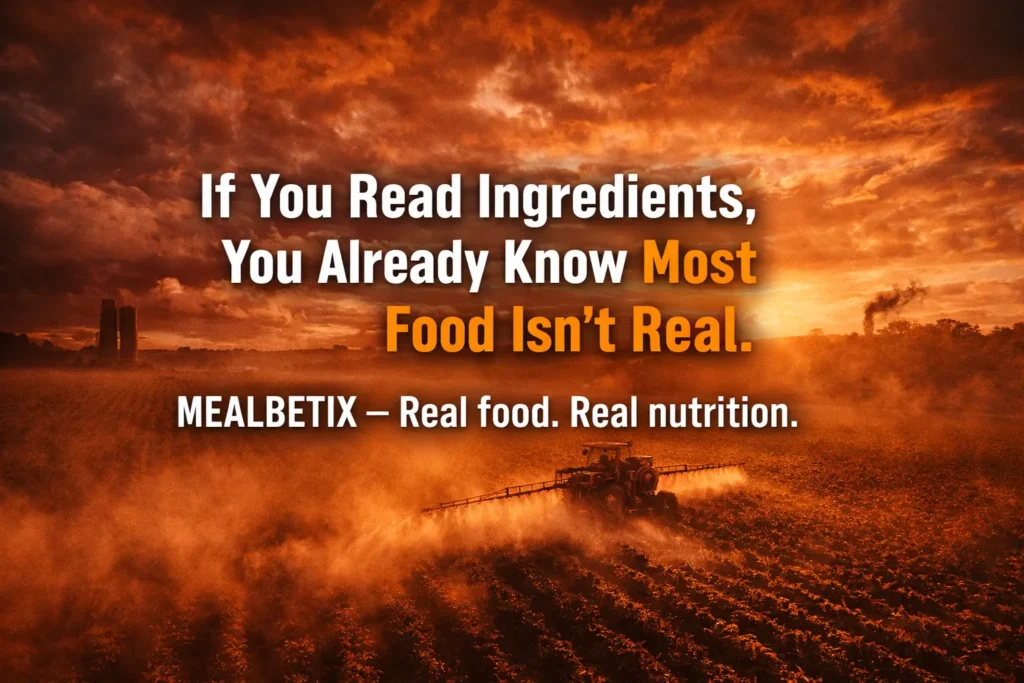Glyphosate, a widely used herbicide, has become a pervasive toxin in modern agriculture and the side effects of glyphosate in food has been widely dismissed and the truth oppressed.
Glyphosate was originally developed by Monsanto in the 1970s, and is now used globally to control weeds.
However, the extensive use of glyphosate over the last half century has devastated the health of billions everywhere!
A mountain of studies have shown that glyphosate residues can be found in all food products, from grains, fruits, vegetables and of course processed and refined foods, to even Mother’s Milk.
The media, the entire medical community and of course Farmers, should all be raising alarms and avoiding glyphosate like the plague on humankind that it is, but instead, entire industries still spray glyphosate on everything everywhere and the truth is oppressed at every turn!
They still claim there is no evidence that glyphosate can harm anything besides weeds, even after they lost a ground-breaking lawsuit where they had to pay out billions in damages – a drop in the bucket if you ask me.
Research suggests that glyphosate can disrupt the endocrine system, cardiovascular system, devastate your immune system, interfere with gut bacteria by destroying the lining of your stomach and colon, thereby greatly contributing or directly causing all chronic diseases.
Health Risks of Glyphosate Exposure

The increasing prevalence of glyphosate in our food supply has prompted numerous studies investigating its potential health risks.
Among the most concerning findings is glyphosate’s classification by the International Agency for Research on Cancer (IARC) as a human carcinogen.
According to the IARC, this classification indicates a significant potential for glyphosate to cause cancer, particularly non-Hodgkin lymphoma, in individuals exposed to it over extended periods.
That means all of us, because all of us are exposed to glyphosate every day of our life!
Beyond its carcinogenic potential, glyphosate has been linked to several other health issues.
Research indicates that glyphosate exposure can lead to *endocrine disruption*, which can interfere with hormone function and result in reproductive problems, developmental delays, and metabolic disorders. Additionally, studies have shown that glyphosate can negatively impact the gut microbiome, leading to digestive issues and weakened immune function.
Another area of concern is glyphosate’s potential to cause oxidative stress, a condition where the balance between free radicals and antioxidants in the body is disrupted.
Oxidative stress has been associated with a range of chronic diseases, including cardiovascular disease, neurodegenerative disorders, and diabetes.
The cumulative effect of these health risks underscores the urgent need to address glyphosate contamination in our food supply and seek safer alternatives for weed control, but we both know this isn’t going to happen any time soon, because Hospitals and of course Big Pharma need a constant flow of sick people.
Most people are unaware of the serious glyphosate side effects hiding in their everyday meals. Studies show that glyphosate food contamination has become widespread due to heavy pesticide use on crops, even those labeled as “natural.” This toxic chemical can build up in the body over time, leading to severe glyphosate effects on health such as chronic fatigue, inflammation, and hormonal imbalances. When consumers are not informed about glyphosate in food risks, they unknowingly expose themselves and their families to long-term health problems, making education and prevention more important than ever.
The early glyphosate exposure symptoms can be subtle—digestive discomfort, brain fog, and recurring headaches—but over time, glyphosate toxicity food has been linked to far more alarming health concerns. Research shows that glyphosate contributes to glyphosate hormone disruption, which affects testosterone, progesterone, estrogen, and even thyroid balance. Scientists are also uncovering evidence that glyphosate gut health impact plays a major role in autoimmune conditions, poor nutrient absorption, and weakened immunity. Avoiding foods with glyphosate contamination isn’t just a choice—it’s a vital step toward long-term wellness.
Perhaps most alarming is the potential glyphosate cancer risk, as several studies have shown correlations between high exposure levels and increased cancer diagnoses. If you want to protect your body and restore your health naturally, it’s essential to avoid glyphosate in diets. Choosing 100% clean, glyphosate-free food is the safest way to defend yourself from these hidden dangers. By becoming aware of how pervasive this chemical has become, you can make informed decisions for yourself and your loved ones, safeguarding your health before irreversible damage occurs.
Environmental Impact of Glyphosate Use

Glyphosate, widely used as a herbicide, has far-reaching consequences for the environment.
One of the most significant concerns is its impact on biodiversity. Glyphosate indiscriminately kills plants, which can lead to a reduction in plant diversity in agricultural and non-agricultural ecosystems.
This loss of plant diversity can have a cascading effect on wildlife, particularly insects and birds that rely on a variety of plants for food and habitat. Another critical environmental issue associated with glyphosate use is the contamination of all the waterways.
Glyphosate and its degradation product, AMPA, are frequently detected in surface water and groundwater due to agricultural runoff. This contamination harms aquatic life, including fish, amphibians, and invertebrates. Studies have shown that glyphosate is toxic to all aquatic species, leading to population declines and disruptions in aquatic ecosystems.
Soil health is also adversely affected by glyphosate, because glyphosate alters the soil microbiome by reducing the diversity and abundance of beneficial soil microorganisms, in other words, glyphosate kills not only weeds, but everything living, too!
This will impair soil fertility and structure, making it more difficult for crops to grow the longer you spray glyphosate.
Furthermore, the persistence of glyphosate in the soil leads to the development of resistant weed species, necessitating the use of even more toxic herbicides that creates a vicious cycle of poison dependency.
The widespread use of glyphosate also contributes to the broader issue of chemical pollution. As glyphosate accumulates in the environment, it interacts with other pollutants, leading to unforeseen and harmful ecological effects –basically, using the environment as a lab to test who dies first.
The environmental impact of glyphosate highlights the need for sustainable farming practices that finally puts an end to the use glyphosate and the destruction of our natural ecosystems.
Contamination in Everyday Foods
Glyphosate contamination is not limited to agricultural fields; it has infiltrated our everyday foods, raising concerns about long-term health implications.
This ubiquitous herbicide has been detected in a wide range of food products, including grains, fruits, vegetables, nuts and processed foods. One of the primary sources of glyphosate in our diet comes from crops like corn, soybeans, and wheat, which are often genetically modified to resist glyphosate, allowing for its increased use and increased devastation to everyone and the environment along with it!
The presence of glyphosate in everyday foods is particularly troubling because it can accumulate in our bodies over time.
Studies have shown that even low levels of glyphosate can disrupt the endocrine system, leading to hormonal disruptions throughout your whole body.
Moreover, glyphosate has been linked to various chronic illnesses, including cancer, liver disease, and kidney damage.
Processed foods are another major source of glyphosate exposure. All processed foods contain ingredients derived from glyphosate-treated crops, such as high fructose corn syrup and soy lecithin.
These ingredients are prevalent in a wide array of products, from breakfast cereals to snacks and beverages. As a result, glyphosate contamination is nearly unavoidable unless you begin The MealBetix Lifestyle.
The contamination of everyday foods with glyphosate highlights the urgent need for stricter regulations and more rigorous testing of food products.
Greatly Reduce Your Glyphosate Exposure
Greatly reducing your glyphosate exposure is absolutely necessary if you want to avoid chronic illness and decreased lifespan.
The most effective way to limit glyphosate intake is The MealBetix Lifestyle.
Organic farming practices prohibit the use of synthetic herbicides like glyphosate, but studies now show that most Organic Farmers share the same contaminated ground water with their nearby Pesticide Farmer, not to mention the wind can carry glyphosate and pesticides across even state lines, contaminating everything and everyone in its path.
Can You Wash Off Glyphosate?
The short answer is of course not, but I know the glyphosate makers want you to believe you can. Seriously, if your food was sprayed with rat poison, would you think you can wash it off a few weeks later and it’s all good? If no, then why is glyphosate ok then? Both are poison! This is the result of brainwashing the masses into ignoring their common sense.
The Importance of Clean Eating

Clean eating is more than just a dietary choice; it’s a commitment to nourishing your body with the purest, most natural foods available that are also truly 100% Glyphosate-Free!
In today’s world, where food contamination is rampant, embracing The MealBetix Lifestyle is essential for maintaining overall health and wellness.
Clean eating focuses on consuming whole, unprocessed foods that are absolutely 100% Glyphosate-Free, 100% Pesticide-Free, 100% Fungicide-Free, 100% GMO-Free and of course no artificial ingredients ever.
As you continue The MealBetix Lifestyle, the more glyphosate and so many other toxins will be removed from your cells and finally all the essential nutrients, antioxidants, and fiber, which support optimal body function and enhance your immune system, will finally fill each cell of your body, which means your health will continue to improve.
The MealBetix Lifestyle is to here to prevent the world from poisoning you and your family by providing you truly 100% Clean meals and snacks every day.
 Dr Darren Wayne, aka The Food Guru, is one of the last Food Scientists not on Big Food’s payroll, not on Big Pharma’s payroll and not on anyone’s payroll, which means he has no agenda, other than to tell you as much truth as possible, before it’s too late.
Dr Darren Wayne, aka The Food Guru, is one of the last Food Scientists not on Big Food’s payroll, not on Big Pharma’s payroll and not on anyone’s payroll, which means he has no agenda, other than to tell you as much truth as possible, before it’s too late.



